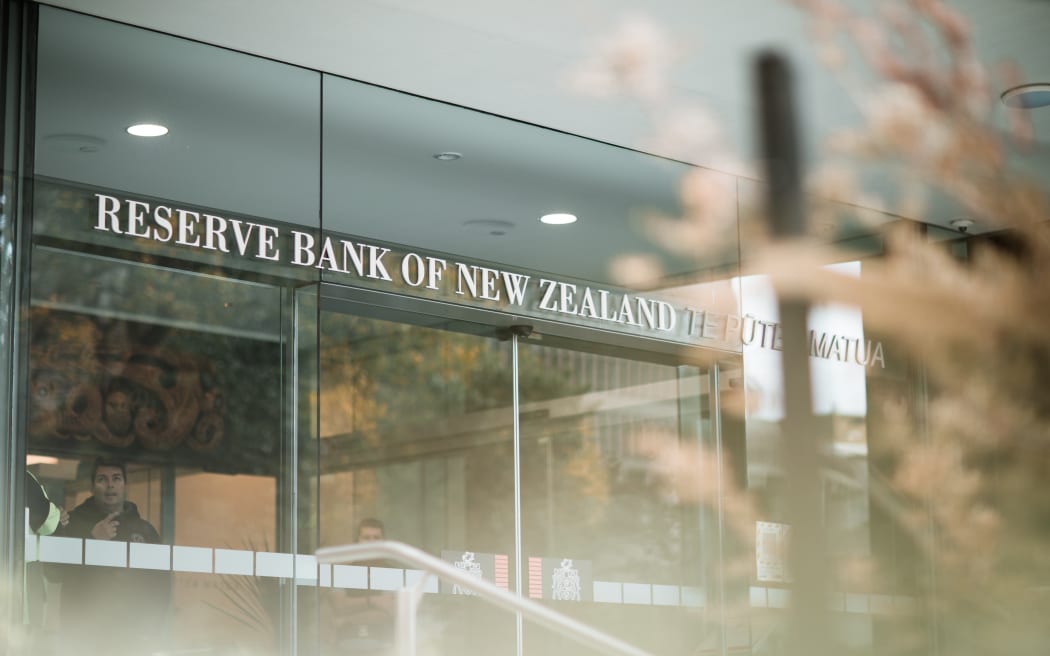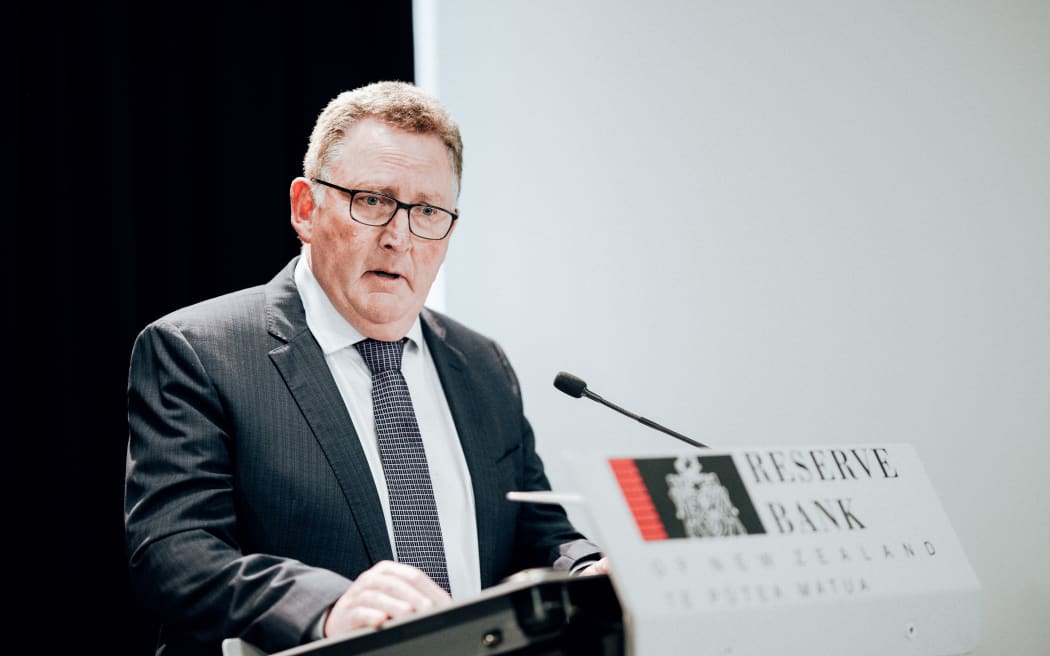The Reserve Bank is charged with keeping inflation down but also ensuring employment stays up. It is a difficult juggling act in front of an unforgiving audience.

Photo: RNZ / Samuel Rillstone
Every three months the Reserve Bank opens its doors on the ground floor of 2 The Terrace in Wellington to journalists to talk about its monetary policy.
It's an event that doesn't usually get a lot of attention - except from business media and economics nerds - but lately the Reserve Bank and its governor Adrian Orr have faced a lot more scrutiny for the bank's part in tackling rampant inflation.
Last week the bank raised the Official Cash Rate by half a percentage point for the fourth consecutive time to three percent and, despite intense criticism, signaled two more hikes to come this year.
In Orr's own words, "inflation is a thief in the pocket", and the bank's actions are not fun "but there is a significant slowing that is needed to get inflation back in its box".
Today The Detail looks at the job of the Reserve Bank and why it has faced so much flak, including from Orr's predecessors, for its handling of monetary policy during the pandemic.
Critics say the RBNZ's response to the Covid crisis, effectively pumping cheap money into the system, led to the runaway inflation which has surged to 7.3 percent, well beyond its target range of 1 to 3 percent. Like other central banks around the world it has been slated for overconfidence about its monetary policy.
"The bank made mistakes," says Paul McBeth, acting head of news for BusinessDesk. But a lot of the criticism is made in hindsight, when at the time no one knew what would happen.
McBeth covered the Reserve Bank's statements and decisions for more than a decade, during the fallout of the Global Financial Crisis and finance company collapses which had a major impact on the bank and its role. He regularly went along to the press conferences at the bank and describes the governor's offices as "very plush, very old world".
"It's not unfair to think of it like an ivory tower, and I think part of Adrian Orr's remit has been to tear some of that down. It is more of the people, it feels more like Aotearoa New Zealand in the 21st century," he says.

Photo:
McBeth says the job of the bank, an independent body, is to control the way money flows in the system, managing prices through the Official Cash Rate. Lowering the OCR is aimed at enabling banks to lend out more, which in turn encourages people to spend more money. Part of its remit is also to ensure maximum sustainable employment.
He explains how the inflation target is set, how the Consumer Price Index fits in, what the Official Cash Rate means and how it ultimately flows onto the banks and helps determine what interest rates customers are charged on their loans or are paid on their deposits.
Until the rules were changed some years ago, McBeth says the Reserve Bank governor had the power alone to set the Official Cash Rate. Now that decision is made by a committee.
"You (the governor) are almost on a par with the finance minister. The governor until we had the change in legislation was the sole decision maker on monetary policy, they could take all the advice they wanted but it was their name on the letter that was going to be moving the cash rate.
"You have to have supreme confidence in your own abilities to do that, to get to those sorts of positions. These are ambitious and intelligent people. We can look in hindsight and point out their errors in what they got wrong, but in the Covid crisis how are you going to predict what happens when the world is shutting down?"
Find out how to listen and subscribe to The Detail here.
You can also stay up-to-date by liking us on Facebook or following us on Twitter.

Photo:


